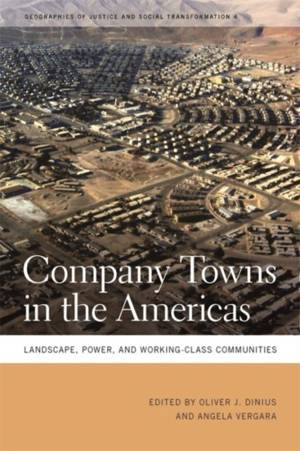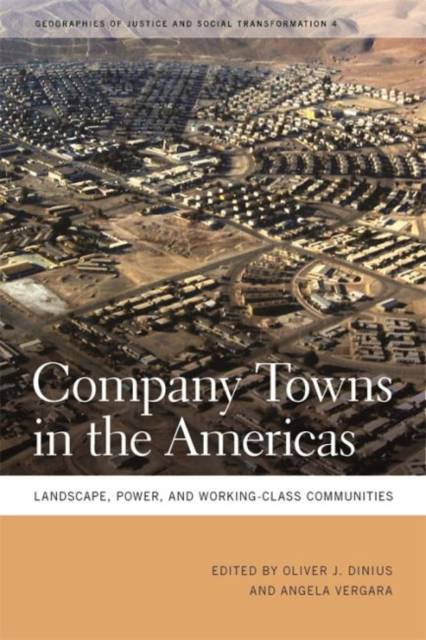
- Afhalen na 1 uur in een winkel met voorraad
- Gratis thuislevering in België vanaf € 30
- Ruim aanbod met 7 miljoen producten
- Afhalen na 1 uur in een winkel met voorraad
- Gratis thuislevering in België vanaf € 30
- Ruim aanbod met 7 miljoen producten
Zoeken
Company Towns in the Americas
Landscape, Power, and Working-Class Communities
€ 205,45
+ 410 punten
Omschrijving
Company towns were the spatial manifestation of a social ideology and an economic rationale. The contributors to this volume show how national politics, social protest, and local culture transformed those founding ideologies by examining the histories of company towns in six countries: Argentina (Firmat), Brazil (Volta Redonda, Santos, Fordlândia), Canada (Sudbury), Chile (El Salvador), Mexico (Santa Rosa, Río Blanco), and the United States (Anaconda, Kellogg, and Sunflower City).
Company towns across the Americas played similar economic and social roles. They advanced the frontiers of industrial capitalism and became powerful symbols of modernity. They expanded national economies by supporting extractive industries on thinly settled frontiers and, as a result, brought more land, natural resources, and people under the control of corporations. U.S. multinational companies exported ideas about work discipline, race, and gender to Latin America as they established company towns there to extend their economic reach. Employers indeed shaped social relations in these company towns through education, welfare, and leisure programs, but these essays also show how working-class communities reshaped these programs to serve their needs. The editors' introduction and a theoretical essay by labor geographer Andrew Herod provide the context for the case studies and illuminate how the company town serves as a window into both the comparative and transnational histories of labor under industrial capitalism.Specificaties
Betrokkenen
- Uitgeverij:
Inhoud
- Aantal bladzijden:
- 236
- Taal:
- Engels
- Reeks:
- Reeksnummer:
- nr. 4
Eigenschappen
- Productcode (EAN):
- 9780820333298
- Verschijningsdatum:
- 1/01/2011
- Uitvoering:
- Hardcover
- Formaat:
- Genaaid
- Afmetingen:
- 152 mm x 229 mm
- Gewicht:
- 521 g

Alleen bij Standaard Boekhandel
+ 410 punten op je klantenkaart van Standaard Boekhandel
Beoordelingen
We publiceren alleen reviews die voldoen aan de voorwaarden voor reviews. Bekijk onze voorwaarden voor reviews.










